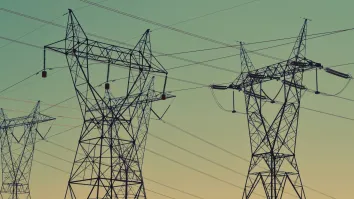
Changing Insurance Conditions for the Operational Power Sector challenge operators
By Philippe Du Four Insurance Conditions for the Operational Power Sector Continue to Change
After many years of falling insurance premiums due to fierce competition among insurers and ample capacity, it appears that there are winds of change coming to the operational Power sector in Asia. While the sector continues to grow at a rapid pace, with the pipeline of power generation projects at full capacity, access to very cheap insurance for project sponsors will be more difficult as claims events increase and insurers tighten their belts.
Over the past five or so years, insurance buyers commonly enjoyed year-on-year premiums discounts of 10 to 20 per cent.
The power sector in Asia has seen severe losses over the last years. Furthermore the effects of multiple catastrophes, including the Japan earthquake, tsunami and nuclear triple crisis, the New Zealand earthquake and the Australian floods, are causing the reinsurance markets to tighten conditions which are inevitably flowed down to primary insurers and eventually to the end consumer.
This knock-on effect will be causing the seemingly never-ending reduction in operational insurance premiums to stop, stabilize and increase in some instances. Clearly there will be differentiation depending on each plant’s technology, location, size, track record but the road ahead is bumpier and placement and marketing of operational insurances will need to be cautiously prepared between operators and their brokers.
Construction vs. Operational
The pipeline for power generation constructions projects – including coal, nuclear, wind, solar and geothermal – is full, with projects that were delayed during the global financial crisis coming back online. The Asian insurance market is now a competitive force for insuring power projects, with many projects in the Middle East and the Pacific being insured by capacity from Asia.
This trend of using insurance capacity from Asia rather than solely the traditional markets from London and Europe is good news for power project sponsors and owners, as rates inAsia have been on certain projects more competitive. For construction projects, insurance is still relatively competitive to purchase.
However, from an operational perspective, the story is somewhat different. There have been a number of large claims events in the power industry, which is causing insurers to review their premium rates for operational power stations.
For businesses renewing their insurance program, many are finding rates remaining stable or increasing, especially for natural catastrophe perils. The consistent reduction in rates over the past several years is no longer a given.
Start Early and Be Detailed
As a power operator – irrespective of whether you are in the construction or operational phase – it is critical that you approach your risk management and insurance program extremely diligently. You need to work with your insurance broker to understand all the potential risk exposures, capture all the mitigation programs in place and then go to the insurance market with your “best foot forward”.
This also includes using Risk Engineers specific to the power industry to conduct site surveys. The more detailed information you can provide, the better coverage terms and price you can achieve.
It’s also critical that you start early. Insurance is requisite for any construction or operational power project. Therefore, any delays with the insurance aspects will mean a delay in construction or operations, which means delay in revenue streams.
Start working with your insurance broker such as Marsh as early as possible to ensure you don’t get caught at the 11th hour, causing lenders to withhold funding and investors to demand answers.
Looking Ahead
The insurance market for power is in a state of transition. The remainder of 2011 will provide some very good clues as to what 2012 and 2013 will bring, with a focus on natural catastrophes. There will also be a focus on developing a better understanding of the risks around renewable energy, such as solar, wind and geothermal.
As insurers get more comfortable with these types of projects, customized insurance solutions that address their specific needs will become more common.
In the meantime, power operators can expect rates to stabilize and increase slightly as the insurance markets respond to the recent natural catastrophes and poor claims experience. Whilst insurance is still relatively competitive in Asia, the bargain days are behind us which means everyone will need to adjust their assumptions slightly going forward.




















 Advertise
Advertise




